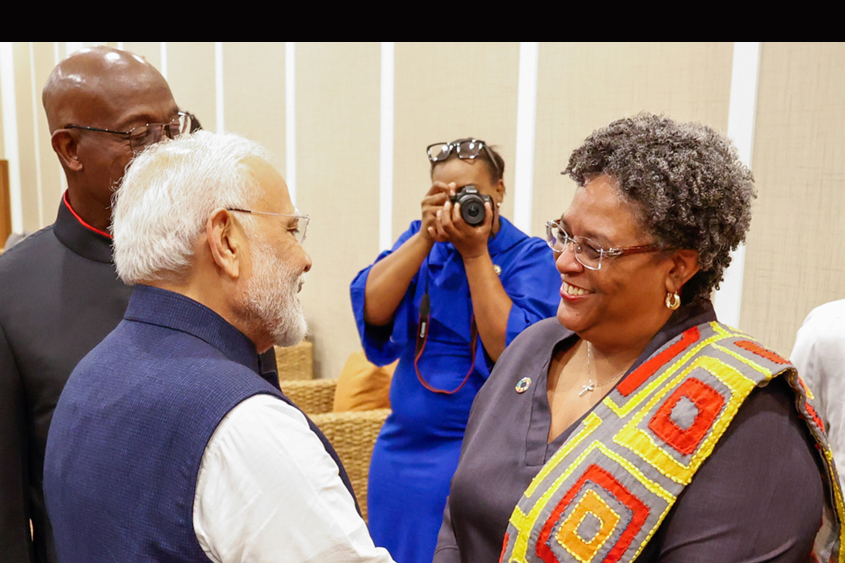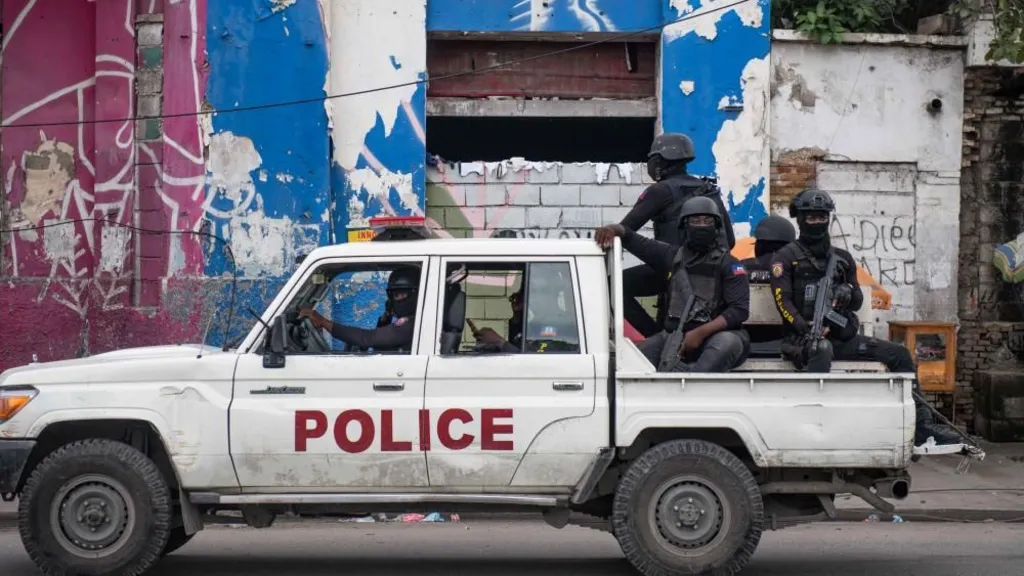

Barbados and other Caribbean economies could benefit from a “promising” increase in relations with India, but there are some potential obstacles to their deeper engagement.
That is the conclusion of India And CARICOM: Towards A Greater Understanding And Cooperation, a study by Trinidad and Tobago-based researchers, Dr Raghunath Mahabir, University of the Southern Caribbean, and Keron Ganpat, University of Trinidad and Tobago.
“The future of India-CARICOM relations looks promising, with several key areas of cooperation being identified for further development,” the report states.
“In relation to economic cooperation, both parties are focusing on enhancing economic ties, with a particular emphasis on agriculture, food security, and infrastructure. India has proposed expanding agri-business and agri-processing, as well as strengthening transport and logistics support systems.
“Similarly, for technology and innovation, there is a strong emphasis on leveraging technology and innovation, including climate-smart agriculture and digital transformation,” it added.
The researchers also said that “cooperation in health and pharmaceuticals is expected to grow, with initiatives aimed at improving healthcare infrastructure and access to medicines”. “Furthermore, India is committed to supporting capacity building in various sectors, including technical training, skill development, and parliamentary training. The establishment of a forensic centre for CARICOM is also being considered,” they said.
“In other areas, both parties are working on renewable energy projects, with India providing support through credit lines and technical assistance and the cultural connection between India and CARICOM, particularly through cricket, is being strengthened.”
The study also noted that India “is looking to enhance cooperation in the maritime sector, including the supply of passenger and cargo ferries, which would bolster transportation and trade”.
As it relates to trade, the report noted that India’s main trading partners in CARICOM were Barbados, the Bahamas, Trinidad and Tobago, Haiti, Jamaica, Suriname, and Guyana.
“India exports mostly pharmaceutical products, iron and steel, machinery and instruments to CARICOM. Crude petroleum, gold, metalliferous ores and scrap are major items that India imports from CARICOM,” they said.
While pointing to increased opportunities, the study also said that “deeper engagement between India and CARICOM could face several obstacles stemming from historical, geopolitical, economic, and logistical factors”.
The potential challenges highlighted included geographical distance; limited economic complementarity; institutional and policy differences; lack of awareness and connectivity; competition from other global powers; climate vulnerability and economic fragility; diaspora-driven engagement; bureaucratic and diplomatic capacity; divergent strategic priorities; and trade and investment barriers.
The researchers elaborated: “India and CARICOM nations are separated by vast geographical distances, which can increase the cost and complexity of trade, transportation, and travel. This could limit frequent physical interactions, cultural exchange, and business ties.
“CARICOM economies are relatively small and heavily reliant on sectors like tourism, agriculture, and natural resources, while India’s economic focus includes manufacturing, services, and technology. The scope for substantial trade and investment might be constrained by limited mutual economic complementaries.”
The researchers continued: “India’s economic and political systems are vastly different from those in CARICOM countries, where small economies and differing regulations might make harmonisation difficult. Divergent policy frameworks could complicate bilateral or multilateral agreements, such as trade pacts or investment treaties.
“There is limited awareness in India about CARICOM nations, and vice versa. Direct flights, efficient shipping routes, and digital connectivity are sparse. This lack of connectivity hampers people-to-people ties, cultural exchange, and tourism.”
The study also stated that with the United States, China, and the European Union having a foothold in the region, “India may find it challenging to carve a niche or compete for influence and trade opportunities”.
CARICOM country’s climate vulnerability and reliance on a few sectors like tourism “could limit their capacity to engage in long-term initiatives or investments with India”, the report said.
The report said further that “over-reliance on diaspora ties may restrict broader bilateral engagement in other critical areas”, and CARICOM nations’ small bureaucracies “could slow negotiations and the implementation of agreements”.
In addition, it noted that India and CARICOM’s focus on the region’s closer to home “might limit sustained high-level engagement”.
Mahabir and Ganpat also said: “High tariffs, non-tariff barriers, and limited trade agreements between India and CARICOM hinder robust economic partnerships. The absence of structured trade facilitation mechanisms reduces the ease of doing business.” (SC)





